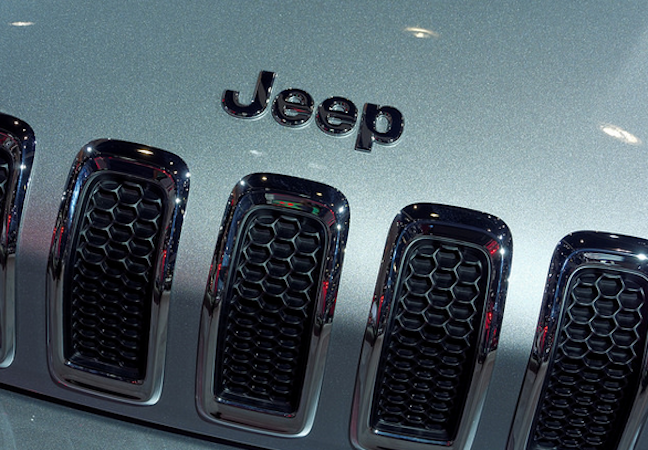More Than 100 Crashes Caused By Confusing Jeep, Chrysler, Dodge Gear Shifters
For most vehicles, shifting into “Park” seems to be a simple task. But for thousands of people who own Fiat Chrysler cars, that’s not the case. Federal regulators expanded their investigation into these vehicles after receiving more complaints about crashes and injuries because drivers say they have inadvertently left their vehicles in gear with the engine running because the electronic gear shifter is confusing.
The National Highway Traffic Safety Administration nearly doubled the number of vehicles under investigation for the issue after finding more than 100 crashes and a dozen injuries involving Fiat Chrysler cars.
With the expansion, NHTSA is investigating more than 856,000 model year 2014 to 2015 Jeep Grand Cherokees, and 2012 to 2014 Dodge Charger and Chrysler 300 sedans with 3.6-liter engines.
According to a notice [PDF] filed by NHTSA, the investigation, which was first opened in August 2015, centers on vehicles equipped with Monostable electronic (E-shift) gearshifts.
The shift system operates electronically and the gear requested by the driver is transmitted from the shifter via the CAN Bus to the Transmission Control Module which makes the requested shift.
However, in some vehicles, the gearshift doesn’t actually move, but springs back to a centered or neutral position.
If a driver opens his or her door when the gearshift isn’t in “park,” a chime rings and a message pops up to alert them that the transmission is not in “park.”
The engine also will not turn off normally without the transmission in “park.”
“This function does not protect drivers who intentionally leave the engine running or those who do not realize that the engine is still running after an attempted shut-off,” investigators said.
As a result, drivers may exit the vehicle when the engine is running and the transmission is not in “park,” leaving the unattended vehicle to roll away, NHTSA states.
NHTSA’s Office of Defects Investigation is aware of 314 consumer complaints about the issue, 267 submitted to Fiat Chrysler and 69 submitted via NHTSA’s database.
In all, 121 have resulted in crashes or fires, with 30 incidents involving injuries to drivers or passengers such as a broken nose, facial lacerations requiring stitches, sprained knees, severe bruising, and trauma to legs.
“While in ‘park’ and idling, the vehicle rolled forward and struck objects 20 yards away causing $1,500 worth of damage to the right front bumper,” one complaint states. “My wife parked the car and had exited the vehicle, when after about 30 seconds it rolled forward and struck headstones in a cemetery. The car still indicated it was in ‘park’ when my son reentered the vehicle.”
In another complaint, the owner of a 2014 Jeep Grand Cherokee says the vehicles rolled from the “park” position without warning. When the woman attempted to stop the car, it ran over her hip, causing injuries that required medical attention.
Owners of affected Charger and Chrysler 300 vehicles offered similar experiences to NHTSA.
“When I put the car into ‘park,’ it pops into reverse,” the owner of a Chrysler 300 writes in a complaint. “Then I hit the engine off button, but since it is in reverse, the engine stays on. Then I open the door to get out, thinking the engine is off and the car is in ‘park,’ and it starts rolling backward. This has happened six times.”
The owner of another 2014 Chrysler 300 writes in a complaint that, on occasion, when the vehicle is in “park” it rolled away. In one instance, the owner was able to stop the vehicle and shift it back into part on the third attempt. However, he suffered injuries to the neck and back that required medical attention.
Fiat Chrysler tells the Associated Press that the company is cooperating with the investigation, and noted that it changed the shifters in the 2016 Grand Cherokee and 2015 Charger and 300 sedans.
Still, NHTSA has opened an engineering analysis to assess the scope, frequency, and safety-related consequences of the alleged defect.
Want more consumer news? Visit our parent organization, Consumer Reports, for the latest on scams, recalls, and other consumer issues.


